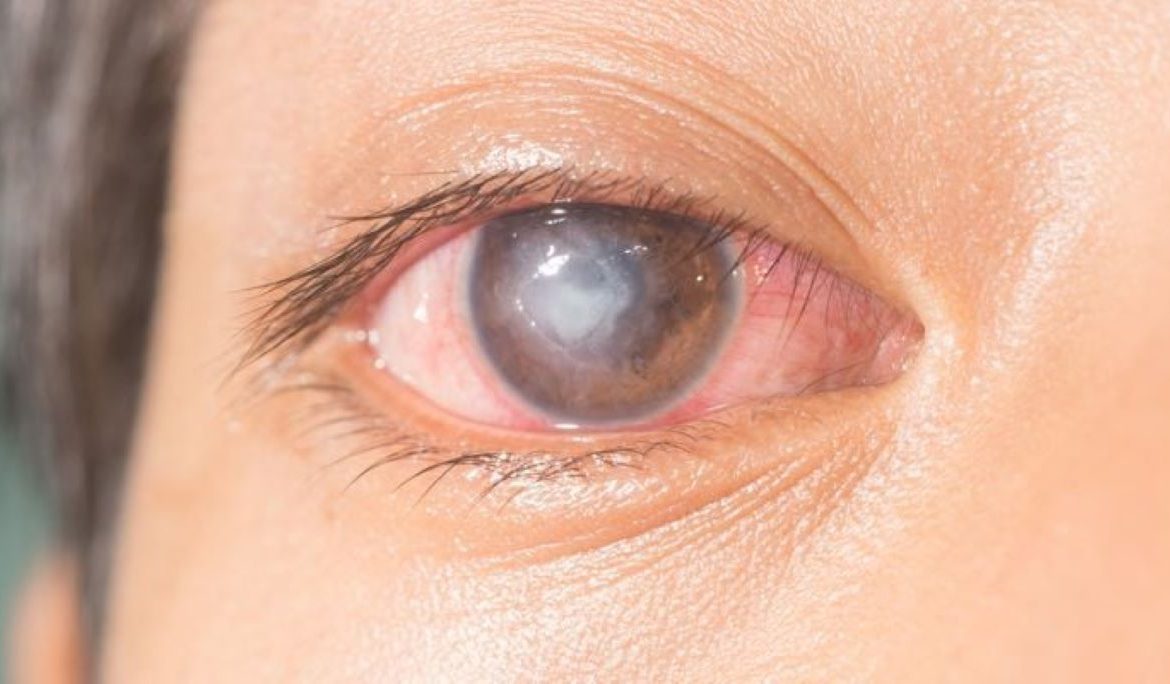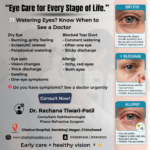Your eyes are precious, and any discomfort, especially if it worsens quickly, must not be taken lightly. One such urgent condition is a Corneal Ulcer – a painful, potentially vision-threatening problem that requires immediate medical attention.
👁️ What is a Corneal Ulcer?
A corneal ulcer is an open sore or wound on the cornea, the clear, dome-shaped surface that covers the front of the eye. This condition is most commonly caused by an infection, but injuries, dry eyes, or poor contact lens hygiene can also lead to ulcers.
If left untreated, a corneal ulcer can lead to corneal scarring, vision loss, or even permanent blindness.
⚠️ What Causes Corneal Ulcers?
Corneal ulcers usually develop due to:
- Bacterial infections (common in contact lens wearers)
- Fungal infections (especially after eye injuries involving plant material)
- Viral infections like herpes simplex
- Dry eye syndrome or eyelid disorders
- Scratches or trauma to the eye
- Contaminated contact lenses or lens solution
Wearing lenses overnight or not cleaning them properly significantly increases the risk of developing an ulcer.
🔍 Symptoms to Watch Out For
Some of the common signs and symptoms of a corneal ulcer include:
- Redness and swelling of the eye
- Severe eye pain or discomfort
- Blurred or decreased vision
- Sensitivity to light (photophobia)
- Tearing or eye discharge
- A white or grayish spot on the cornea
- Feeling like something is stuck in the eye (foreign body sensation)
These symptoms may start mildly but can worsen within a short time.
🏥 When to See a Doctor
If you experience any of the above symptoms, do not delay. A corneal ulcer can worsen quickly, and only an ophthalmologist can diagnose it accurately using slit-lamp examination and other tests.
Dr. Rachana Tiwari, Consultant Ophthalmologist at Chetna Multispeciality Hospital, specializes in diagnosing and treating corneal conditions using advanced technology and personalized care.
💉 How is it Treated?
Treatment depends on the underlying cause:
- Antibiotic, antifungal, or antiviral eye drops for infection
- Lubricating eye drops if caused by dry eyes
- Pain-relief medications
- In some cases, corneal transplantation may be needed if the ulcer causes permanent damage
Timely treatment helps avoid long-term complications.
✅ How to Prevent Corneal Ulcers
- Never sleep while wearing contact lenses
- Wash your hands before handling lenses
- Clean and store lenses as instructed
- Avoid using expired or shared lens solution
- Use protective eyewear while working outdoors
- Don’t ignore symptoms like redness or pain
Contact us on 9168690448 / 9158681123
Website – www.chetnahospital.co.in
Sambhajinagar, MIDC, G Block, Near Rotary Club, Chinchwad 411019
.
.
.
#hospital#pune#pcmc#chinchwad#medical#medicalservices#dryeyetreatment#dryeyerelief#dryeyedisease#dryeyetherapy#catract#catractsurgery#catracteyesurgery#catracteyeoperation#eyedoctor#eye#glaucoma#conjunctivitis#ophthalmologist#eyediseases#eyepain#pinkeye#hazeleyes#myopia#eyeinfection#amblyopia#dryeyesyndrome#eyeproblems#motibindu#motibinduoperation













